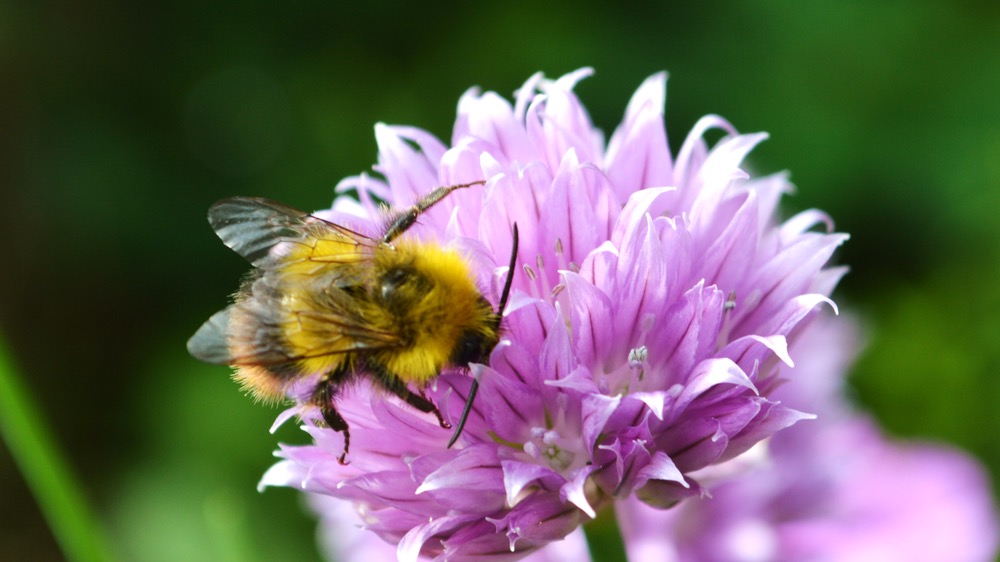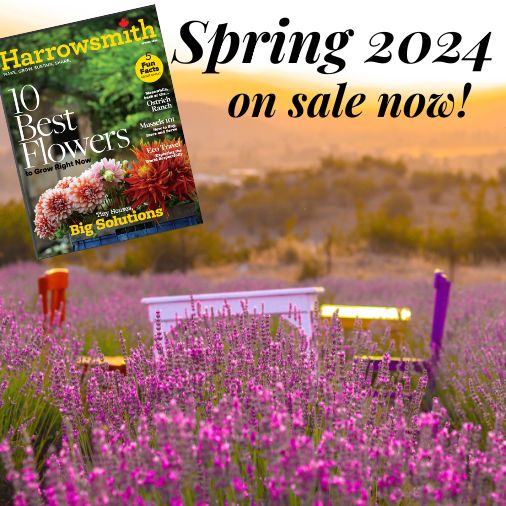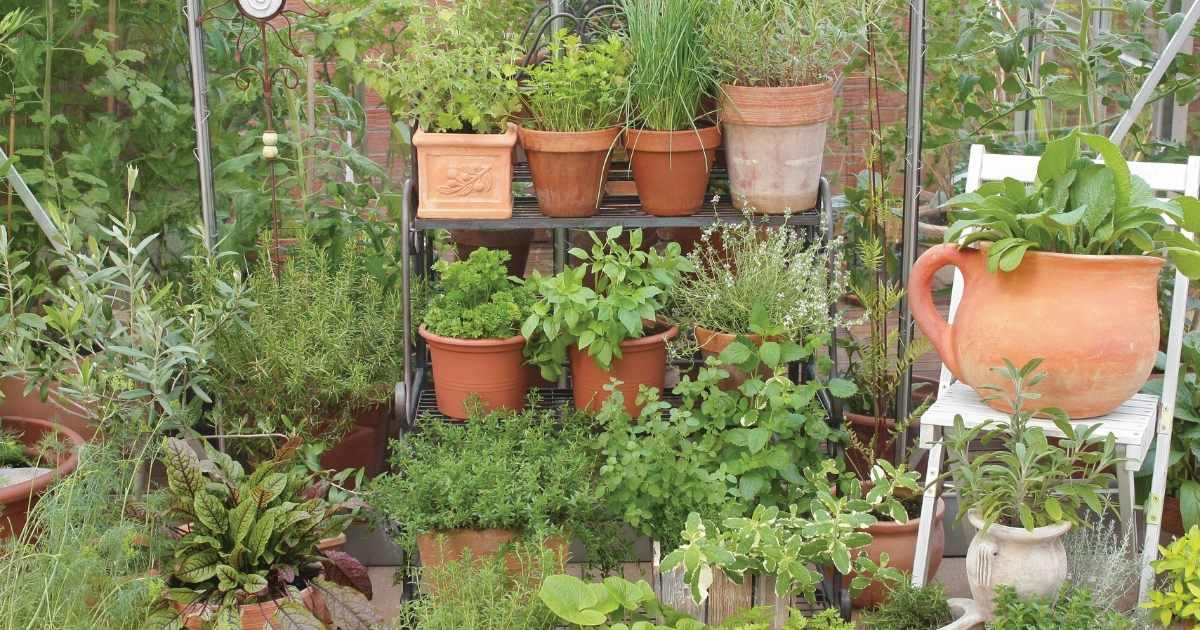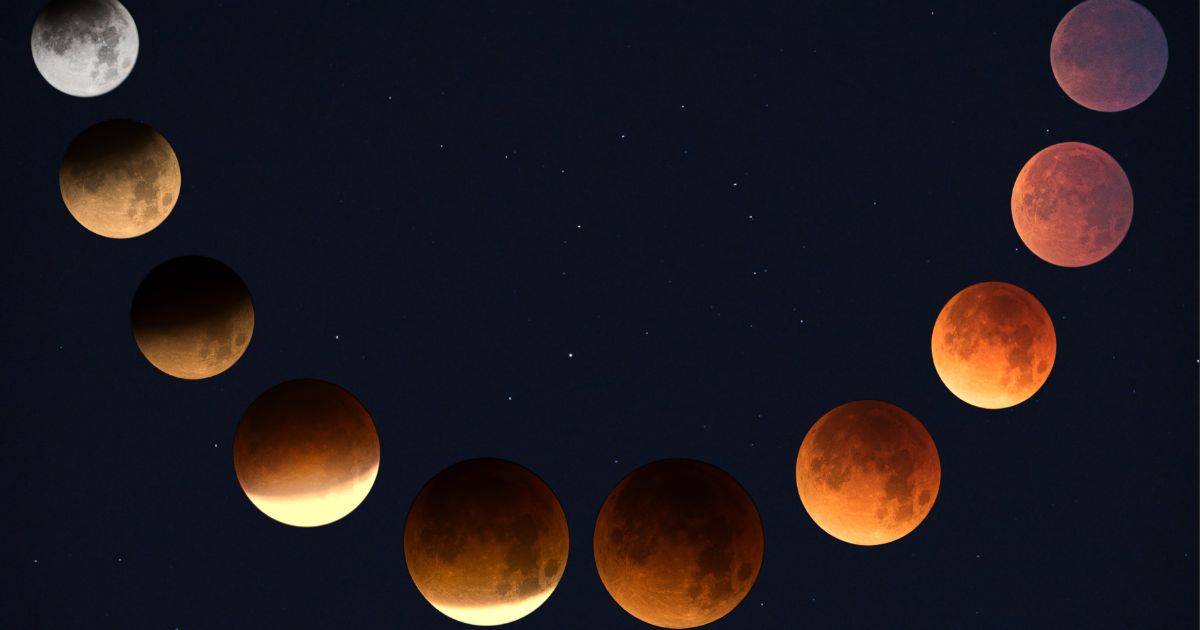Adding plants that are attractive to bees, butterflies, hummingbirds, and songbirds in the treetops has always been a principle of cottage gardens. It’s also a fantastic way to connect with nature. Inviting pollinators into our gardens increases the yield of our food crops and promotes biodiversity, which is essential for maintaining healthy ecosystems.
5 easy-to-grow plants that attract pollinators
1. Chives

Grow from seed or transplants: you cannot stop chives from growing and reproducing all over your yard. Let them flower for a sweetly scented herb that attracts native bees and non-native honeybees in droves. Note that all parts of the chive plant are edible so you can go nuts in the kitchen with this one.
2. California Poppy

Plant from seed for best results. Direct sow on well-prepared soil and do not disturb or cover the seed. Water gently for a magnificent show of colour come June and early July. Sunny locations only.
How to Attract Pollinators to the Garden
3. Sunflowers

Nothing germinates from seed faster, grows taller, provides more drama with their wide-faced sunny blossoms and attracts honey bees and native bees as well. Make sure that you sow sunflowers in a sunny spot; soil prepared with dug–in compost or composted manure and be sure to water until they become established after the first 4 weeks or so. Also, consider how you will support them come midsummer if they are exposed to high winds.
4. Calendula

This daisy-shaped flower is easy to grow from seed. They are marginally hardy to frost, love the sun, and produce the most vividly hot shades of orange and yellow that you can imagine.
5. Basil
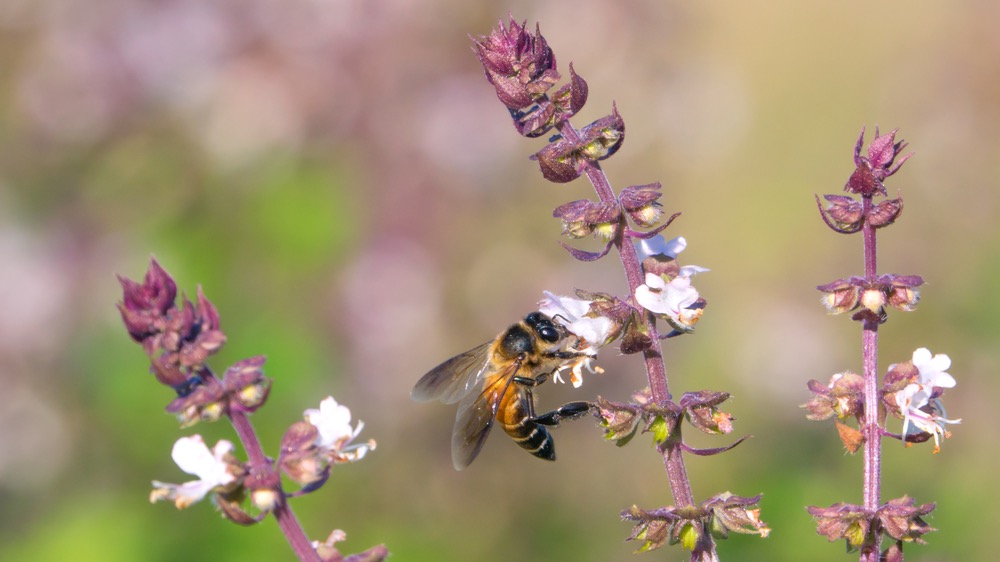
Another herb that attracts a wide range of pollinating insects. Basil can be grown easily from seed indoors or small plants purchased from your retailer work equally well. They are frost sensitive so do not plant them out until late May. Basil is a heat-seeker so plant in a bright, sunny location and allow the plant to flower if you wish to attract pollinators. However, removing the flowers will encourage more foliage growth.
Mark Cullen is an expert gardener, author, broadcaster and tree advocate
and holds the Order of Canada. His son, Ben, is a fourth-generation
urban gardener and a graduate of the University of Guelph and Dalhousie
University in Halifax. Follow them at markcullen.com, @MarkCullen4
(Twitter) and @markcullengardening (Facebook) and look for their latest book, Escape to Reality.
Follow them at markcullen.com, @MarkCullen4, facebook.com/markcullengardening and biweekly on Global TV’s national morning show, The Morning Show.

